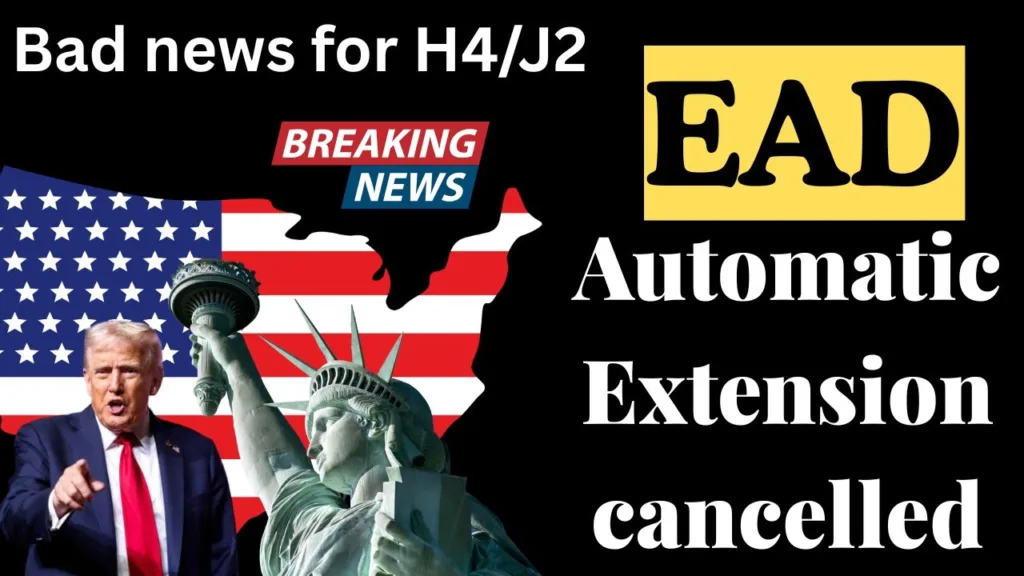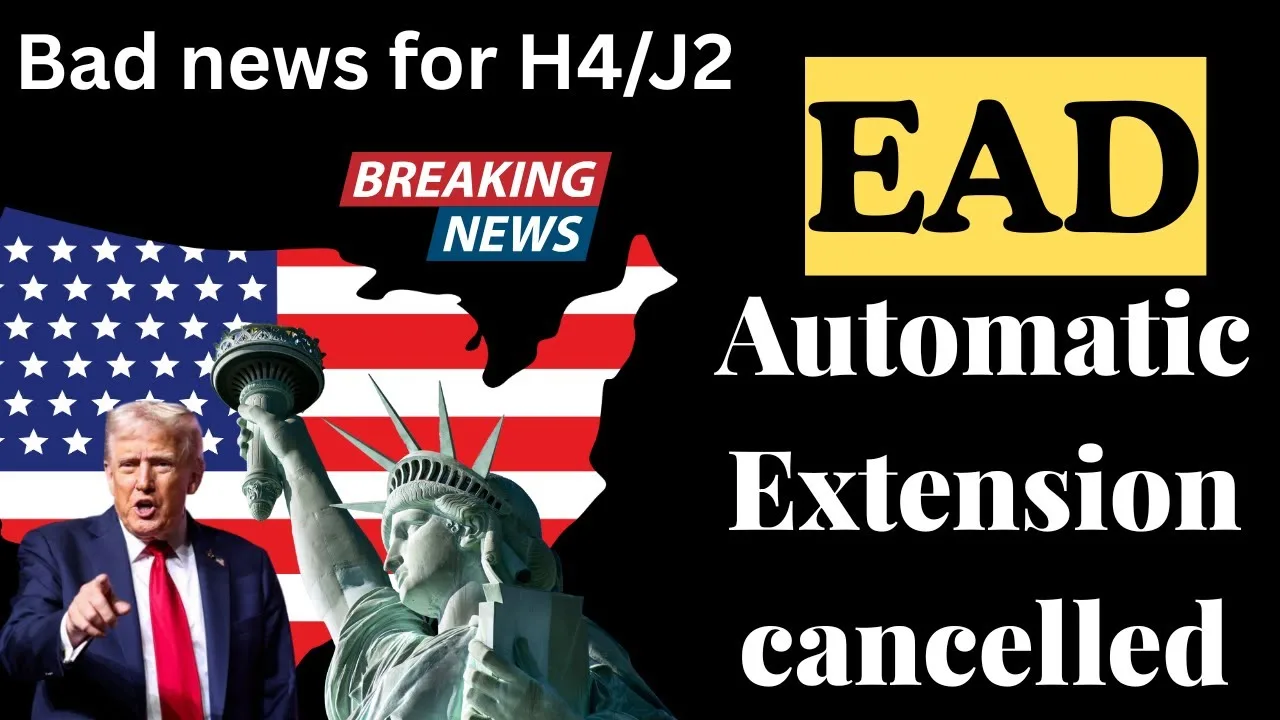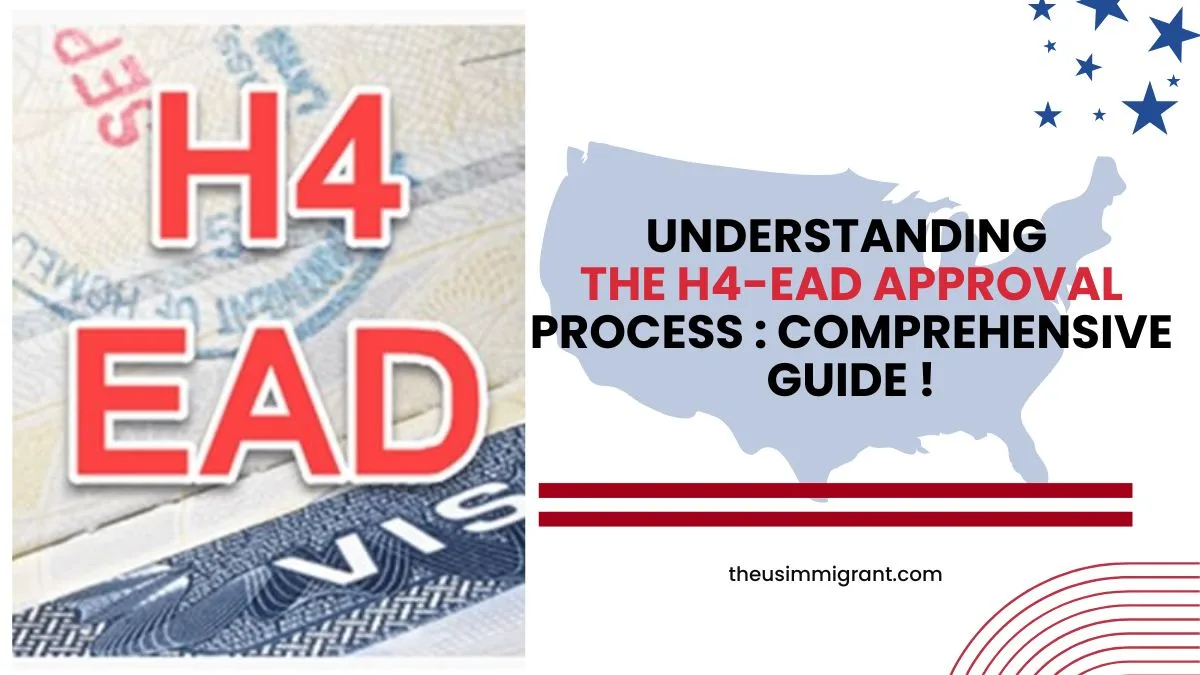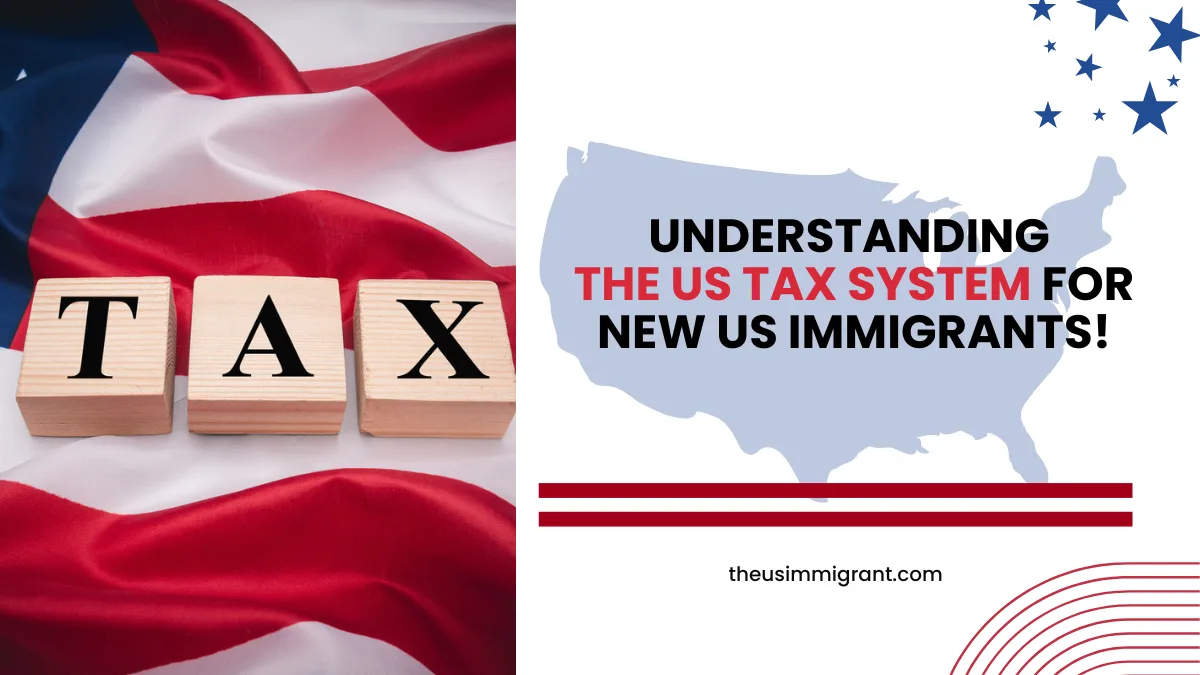
The Department of Homeland Security (DHS) has issued a pivotal Interim Final Rule (IFR) abruptly ending automatic Employment Authorization Document (EAD) extensions for thousands of US immigrants – including H-4 visa spouses and Adjustment of Status (AOS) applicants.
The new rule, now published in the Federal Register, changes the landscape for employment eligibility and impacts immigrant families across America.
Impacted Groups and Key Exceptions
The rule targets:
H-4 dependent spouses of H-1B visa holders
Adjustment of Status (AOS) applicants in transition to permanent residency
Exceptions: EAD extensions authorized by statute or Federal Register notices (e.g., asylum, Temporary Protected Status (TPS), VAWA) remain unaffected by the new policy.
Crucial Change for Employment Authorization Document (EAD) Renewals
Until now, eligible immigrants could continue working for up to 540 days after timely submission of EAD renewal applications, thereby avoiding employment gaps during prolonged U.S. Citizenship and Immigration Services (USCIS) adjudications.
Starting October 30, 2025, this automatic extension is eliminated for H-4 visa holders and most AOS applicants.
Following expiration, individuals must immediately cease work unless and until USCIS issues a new, valid EAD card.
Why is DHS Implementing this Change?
DHS aims to “strengthen identity verification, background screening, and vetting processes,” according to officials. This move is intended to tighten security and ensure only fully vetted immigrants retain legal work authorization. The rule was issued via interim final action without the usual public comment period, and legal challenges may be forthcoming.
Employer Obligations and Compliance
Employers nationwide must now verify immigrants’ possession of valid, unexpired EADs before permitting any continued employment. Failure to do so may result in significant legal and financial penalties
Expert Analysis & What’s Next
Immigration and employment law experts warn that the new rule may disrupt businesses, push immigrants off payroll, and create hardship for families struggling with slow USCIS processing times.
Many advocacy organizations are mobilizing to challenge the policy and demand a reinstatement of automatic EAD extensions for the future.
Summary Table: What to Know and Timeline
| Date | Change/Requirement | Who is Affected |
|---|---|---|
| October 30, 2025 | Automatic EAD extensions end | H-4 & AOS applicants |
| After expiry | Must stop work until EAD renewal approved | All affected immigrants |
| Ongoing | File renewal up to 180 days before expiration | Proactive applicants |
| Exceptions remain | Asylum, TPS, VAWA, certain lawful statuses | Exempt applicants |
Essential Takeaways for US Immigrants
Automatic EAD extensions for H-4 and AOS end on October 30, 2025.
Employment must cease upon EAD expiry unless USCIS approval is granted.
Early EAD renewal filings (up to 180 days before expiration) are now critical.
Most EAD renewals require 6-12 months for USCIS processing.
Certain lawful categories (TPS, asylum, VAWA) remain exempt.
Employers face compliance audits for employing immigrants without valid EADs.
Receipt notices will no longer serve as legal work permits.
Immigration attorneys recommend planning renewals and gathering documentation early to avoid work gaps.
Key FAQs for Immigrant Workers
Q1. Who is impacted?
Ans. Any H-4 spouse or AOS applicant whose EAD expires after October 30, 2025.
Q2. What happens after my EAD expires?
Ans. Work must immediately cease until a new EAD is issued by USCIS.
Q3. Are receipt notices valid for employment?
Ans. No. Receipt notices will no longer authorize continued employment.
Q4. How long does USCIS take for EAD renewals?
Ans. Most cases are processed in 6-12 months, depending on the workload.
Q5. Are there any exemptions?
Ans. Yes—applicants covered under specific laws or special Federal Register notices (TPS, asylum, VAWA) are exempt.
Q6. What’s the advice for current applicants?
Ans. File EAD renewals as early as 180 days before expiration to minimize disruption in employment status.
Stay informed and prepared – subscribe for the latest US immigration policy news, work permit updates, and EAD renewal tips.
For complete guidance on employment authorization changes, consult with a qualified immigration attorney.
Source : https://www.uscis.gov/newsroom/news-releases/dhs-ends-automatic-extension-of-employment-authorization




